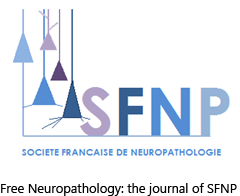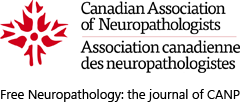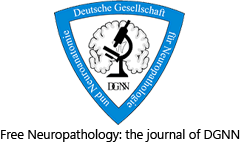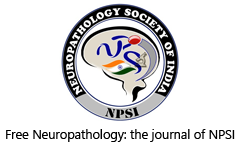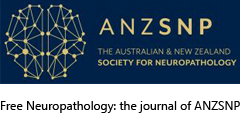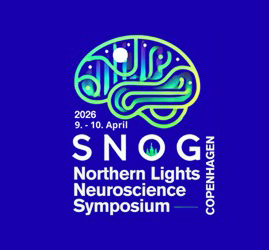Reflections


I'm going to explain how and why I fell into the Department of Neuropathology at the Pitié-Salpêtrière Hospital of Paris. I'd also like to sketch the history of French neuropathology in the years 1960-2010, as seen by a naive young student, and then by a practicing neuropathologist (often still very naive). As a matter of fact, although the history of neurosciences [1-2] and the Pitié-Salpêtrière Hospital in Paris [3-4] have been the subject of numerous publications, the history of neuropathology in this hospital has been rarely documented [5-6].
I spent more than forty years strolling along the alleys of La Salpêtrière, among its old pavilions, the Saint Louis chapel, the “Pavillon des folles,” the courtyard of Manon Lescaut and the guard room. I worked full-time between the Escourolle laboratory, the “Amphithéâtre des morts” and the University. It has been a real pleasure to be part of this world.
I would also like to offer young doctors in training and future neuropathologists some advice that might help them in the choice and development of their future careers.



Life in neuropathology and beyond
It was about our escape from Bratislava (Preßburg, Pozsony). We fled at night by boat on one of the river branches of the Danube in August 1945, in the last year of World War II. I was eight years old. Our possessions in bundles on a cart, our destination was a small Hungarian town called Mosonmagyaróvár.
In my mentioned text Conversation with the Moon I embedded all my youthful, naive thoughts and emotions from that time. This was in Hungary in the early fifties under the Rákosi dictatorship. After finishing that story I realized it couldn’t go on like this for long. There was a feeling of looming threat that made my stomach hurt. And now I just had to decide what profession to choose for further learning.
Both my mother and grandfather were physicians and it became obvious that I, too, would choose this apolitical, strictly fact-based profession, although it felt quite distant for me.
My interest in joining the medical profession emerged in my teens and I found myself in 1960, at the age of 18, commencing a degree in Physiology at St Hugh’s College, Oxford University, as the first stage towards attaining this ambition. This 3-year course was to be followed by three years of clinical training and a supervised year of hospital practice before full registration as a medical doctor. Women made up about 10% of the medical students at Oxford at that time and, in due course, we were distributed in a wide range of medical specialties.
The golden era of neuropathology







